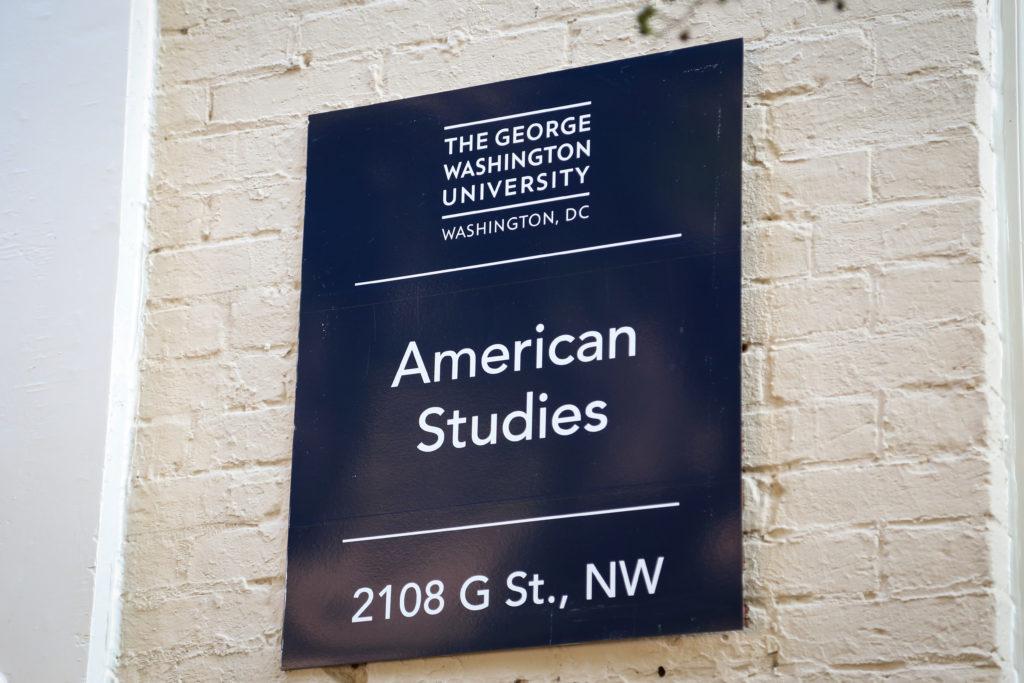When students register for classes next week, they will see a wider range of classes focused on race and diversity in the American studies department.
The department hired two new faculty members this semester who are heading courses this spring on topics including race and sexuality. Faculty said the new courses will revive the department’s offerings on African American studies and encourage students to engage in discussions about history, pop culture and LGBTQ studies.
Gayle Wald, the chair of the American studies department, said the two new faculty members – Amber Musser and Nicole Ivy – will each teach new courses entitled The African American Experience, Biopolitics, Intimacy and Precarity, and American Contagions, which examines how race, gender and sexuality influence health care in America.
Wald said the new courses will spark more conversations about race in areas like museum and queer studies, which the department previously did not emphasize.
“Professors Ivy and Musser will help us shore up our historical strength in this area and will do so while bringing expertise in emerging fields of research, such as critical visual studies, history of medicine, museum studies and material culture, sexuality studies and queer of color studies,” Wald said in an email.
Wald said she has been working to build up offerings in African American studies in the department following the deaths of faculty members James Horton last year and James Miller in 2015, who were both leading figures in the field.
“American studies is a ‘discovery’ major – students don’t necessarily know that it exists when they start college,” Wald said. “I hope students will take an opportunity to take a course with one or both of our new faculty.”
Aside from the two new faculty members’ courses that focus on race, the department also will offer courses taught by other faculty members in the spring including Race, Gender and Law and Politics of “Saving Africa.”
Musser, an associate professor of American studies who is teaching The African American Experience in the spring, said the course will provide a “fuller space” to analyze the overlap of race and social issues, like mass incarceration.
The course will explore African American life from slavery to present and students will begin with examining the central question of what it means to have been treated as a commodity, according to the syllabus.
“Hopefully most of the students who are taking these courses will see these things and types of analyses and bring them into conversation in their own other interests and passions,” Musser said.
Musser is currently a fellow at the Arts Writers Grant at the Warhol Foundation, where she earned funds to conduct research for her book, “Brown Jouissance: Feminine Imaginings,” which examines the intersection of race within queer and feminist theory.
“To think, how are there ways that we can use these ideas of difference to work towards a different idea of inclusion or a different set of responsibilities so that there isn’t the same kind of marginalization?” she said.
Ivy, an assistant professor of American studies teaching the American Contagions course, said she hopes to “amplify” the department’s offerings by merging her expertise on the history of medicine and slavery. She will also teach a dean’s seminar called Bodies of Work, which will explore how the human body has fit into historical and cultural narratives, according to the syllabus.
“My methodology is always grounded in black studies as much as it is in critical theory, as much as it is in history and historical geography,” Ivy said. “So I bring to the work of American studies a distinctly black studies approach.”
Ivy is currently teaching a course entitled Early American Cultural History and a graduate course entitled National Bodies, which examines how landmarks like the Statue of Liberty represent the United States. In both courses, she said students work through questions of power and representation, specifically looking at the lives of African Americans.
“Part of what adding new faculty with diverse expertise does is allow American studies to really be in conversation with a broad group of students,” she said. “Students who might not always think that cultural study is applicable to them.”





